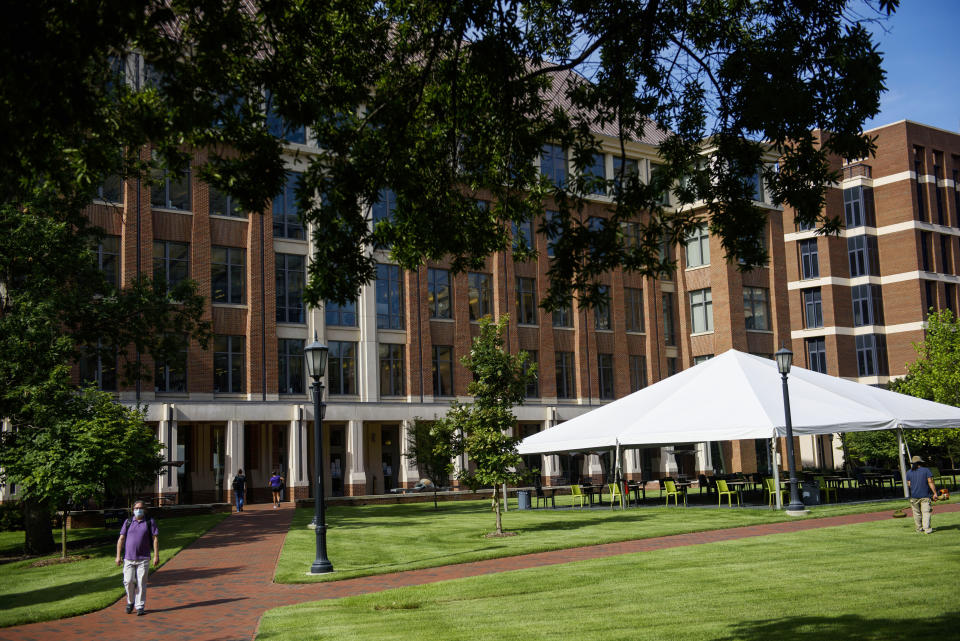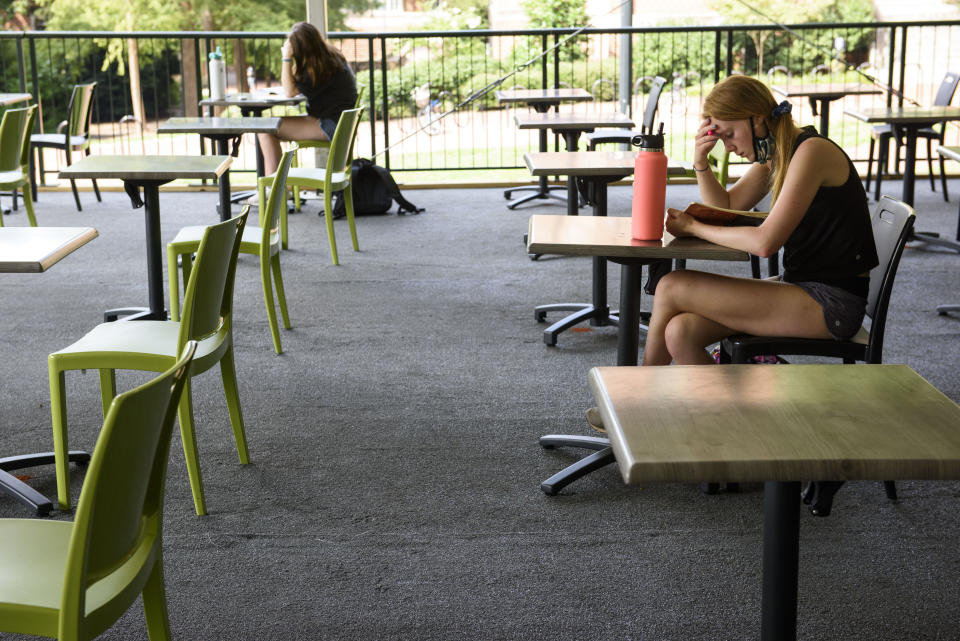'It's been painful:' Chapel Hill mayor on COVID-19's toll on college towns
The economic strain that COVID-19 has placed on almost every aspect of American life has been immense, including for many college towns. According to Yelp data, businesses in college towns have a 24% higher permanent closure rate on average compared with the permanent closure rates in their respective States.
Pam Hemminger, mayor of Chapel Hill, North Carolina, knows this all too well. Her town is home to the University of North Carolina at Chapel Hill. The university had to switch to mostly online instruction due to rising coronavirus rates after opening up for in-person learning this fall. She joined Yahoo Finance to discuss how the shift to mostly remote learning is impacting businesses in the city.
“It's been painful. We are intertwined with the university being a college town, and we share a downtown area. The university is actually on half of our main street, and businesses there count on student activity, conferences, sporting events, all those kinds of things with the foot traffic that comes to and from campus,” she said.

“About three-quarters of the students normally live out in the community. So you have a lot of people going back and forth. We have a lot of folks that work in the community, that live in the community and work on campus.”
The Chapel Hill mayor tells Yahoo Finance that the city is doing all it can to help businesses in the community, including a restaurant that has been in operation for over 97 years.
“It’s really struggling and we're trying our best to help out. We've done several things, but it's painful and just devastating with some of our iconic places in our downtown area.”
Hemminger points out that Chapel Hill’s sales tax collections have decreased significantly as well as its occupancy tax, which comes from people staying in the town’s hotels and eating at its restaurants.

“They're down 60% to 70%. People just aren't staying and traveling as much. And we count on that tourism business here, as people are coming to be either involved with a university or a town or a mixture of the two.”
Hemminger also notes that the problem is not just the finances of Chapel Hill but the entire state of North Carolina as well.
In March, Congress passed the CARES Act to help people and cities affected by the pandemic, however Hemminger says that the majority of funds went to larger cities.
“We have a lot of needs here ... The state is coming through [with] money as well, and we've been trying to be very diligent on having people look at how to best spend those monies. The absolute, number one main goal is to keep people safe and, we've worked really hard,” she said.
“We've distributed masks; we are giving resources and information out to folks. ... Trying to work all that out and still operate your town and have the normal functions that a town does has been really difficult.”
Reggie Wade is a writer for Yahoo Finance. Follow him on Twitter at @ReggieWade.
Read more:
16-year-old student arrested for allegedly crippling Miami school system with cyberattack
How retailers are combating the surge in online counterfeit goods
New York City delays K-12 opening after pressure from country's largest teachers' union
27% of parents feel unsupported by their employers this back-to-school season: Survey
Read the latest financial and business news from Yahoo Finance
Follow Yahoo Finance on Twitter, Facebook, Instagram, Flipboard, LinkedIn, and reddit.
